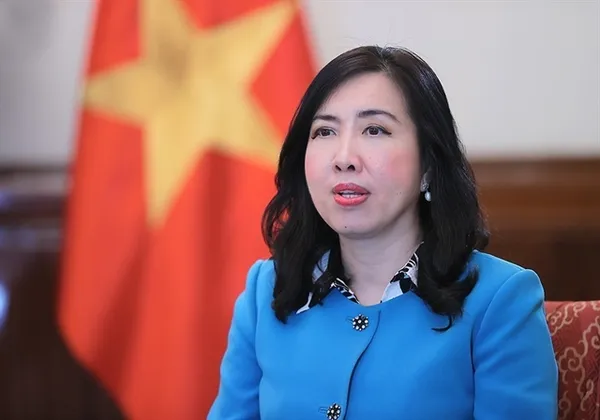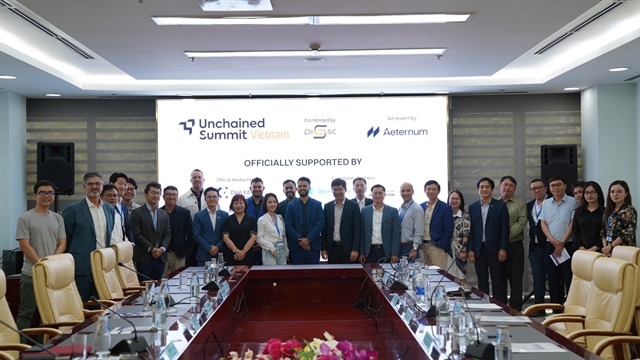 Opinion
Opinion

 |
| Viktor Petrov, a member of the board of trustees of the Soviet Peace Fund, speaks to a Vietnam News Agency correspondent in Russia. VNA/VNS Photo |
MOSCOW – During its fight for independence and freedom, Việt Nam brought together all the strengths essential for the victory 50 years ago, said a member of the board of trustees of the Soviet Peace Fund.
Talking to Vietnam News Agency correspondents in Russia, Viktor Petrov, who was also a member of the Soviet Union’s committee for supporting Việt Nam, elaborated that those factors included the clear-sighted leadership of the Party, the genius of the country's leaders, a wise diplomatic strategy, skilled negotiators, the national unity, a capable army, and strong support from the international community.
He stressed that Việt Nam’s unrecognisable achievements and changes today are entirely justified when the Vietnamese people managed to secure those strengths.
He shared that what struck him most was the strength of Việt Nam during the struggle and the way every Vietnamese came together and drew upon their collective power to reach the final goal – the reunification of the country, the reunion of families, and peace for their homeland.
With a background in international relations and strong proficiency in French, Petrov was assigned to handle Việt Nam-related matters at the Soviet Union’s committee for supporting Việt Nam during 1972–1973, when the peace negotiations entered the challenging final stage. The committee was responsible for assisting delegations from South Việt Nam.
Working directly with Vietnamese delegations, Petrov witnessed the final phase of the negotiations, when the two sides engaged in moment-by-moment battles of wits to defend and push their agendas toward a final outcome. The US and Western powers did not want to be in failure in South Việt Nam, and sought to prevent the reunification of the country’s two regions following the 1973 Paris Peace Accords.
He noted that negotiating with an opponent gripped by fear and fully aware of its impending defeat created an extremely challenging context for Việt Nam.
He said that he could not remember how many times he had welcomed and seen off renowned diplomat Nguyễn Thị Bình, head of the delegation of the National Front for the Liberation of South Việt Nam and then the Provisional Revolutionary Government of the Republic of South Việt Nam, during her negotiation and advocacy visits to Moscow. She was also one of the persons signing the 1973 Paris Agreement and the only woman among them. Petrov was impressed by her fluency in French, busy schedules, and tireless efforts.
The Soviet Union’s committee for supporting Việt Nam brought together representatives from various professions, including many famous persons and those with financial resources and wide relationships, who effectively leveraged their influence and capacity to support Việt Nam, Petrov noted.
The committee's task was not to call for support for Việt Nam in the Soviet Union because supporting Việt Nam was already a widespread movement in the Soviet Union at that time, but it is responsible for advocating support from other countries such as Sweden and France. Facing hardships of the war, activities of Việt Nam’s peace negotiation delegations abroad would have been much harder without the strong support from the Soviet Union, as well as political friends in France, Sweden, and other countries, according to him.
Petrov emotionally recalled the moment when he delivered the news of victory on April 30, 1975 to the delegation of South Việt Nam at the Ukraine (now Radisson) Hotel in Moscow.
He stressed that he is proud to have played a part in the reunification of Việt Nam. — VNS




